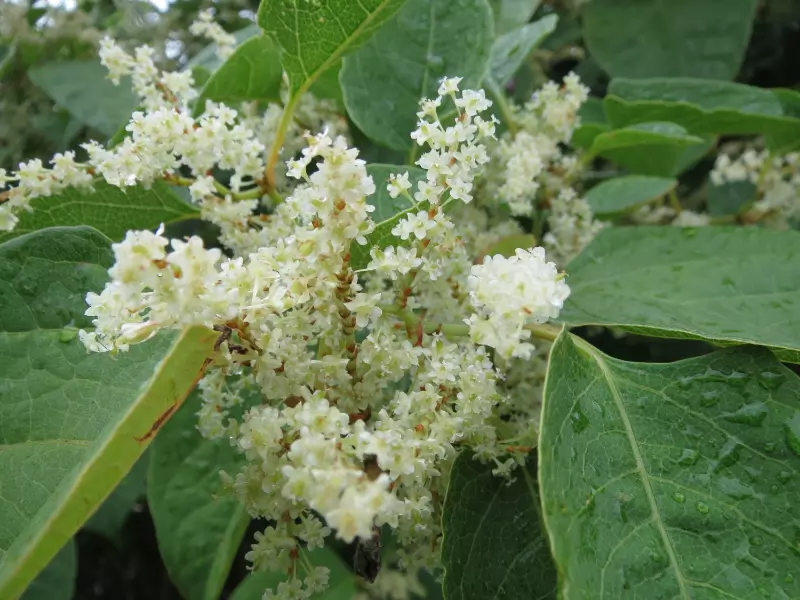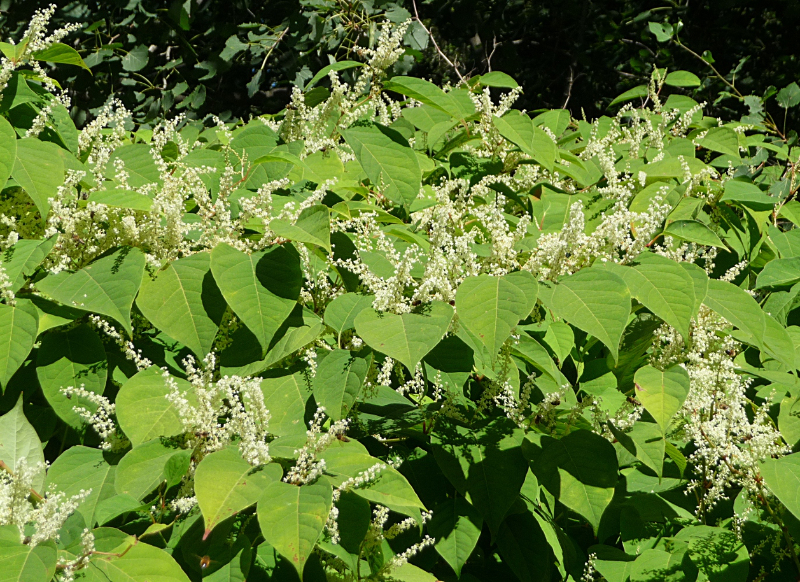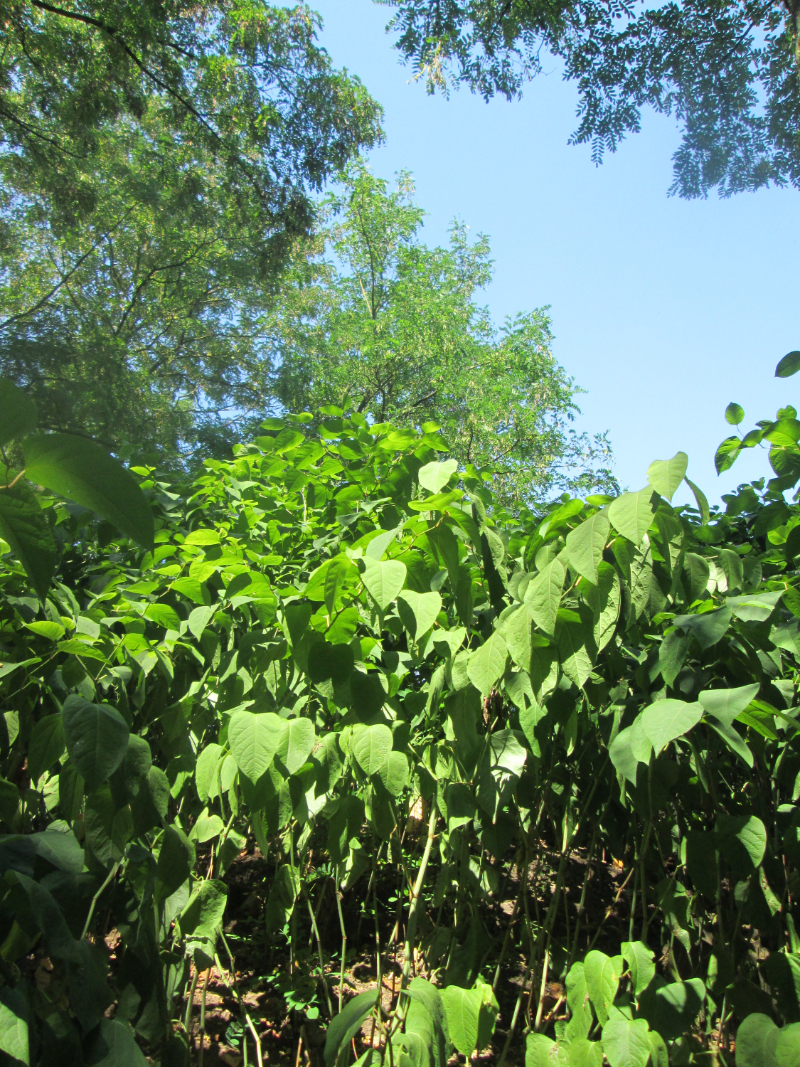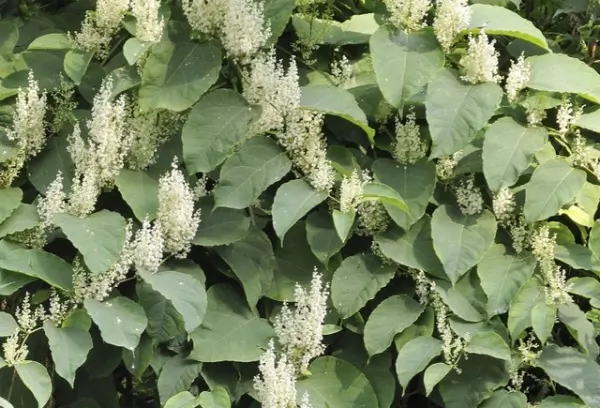What happens if you find Japanese knotweed? Our Japanese knotweed specialists offer solutions to removing invasive weeds from your property. Find out what to do if you discover Japanese knotweed.
Do I Have To Declare Japanese Knotweed?
You are not required by law to alert the authorities if you discover a Japanese knotweed infestation on your property. You are not required to alert your neighbours or the local authorities to the existence of Japanese knotweed, even if it is forbidden to let it spread outside of your property.
It is legal to have Japanese knotweed in your garden or on your land. You are not compelled by law to alert anybody or take any action against the plant if you find it on your property. However, you must stop the plant's proliferation regardless of whether the place is privately or publicly used.
In Britain, Japanese knotweed can grow up to 20 centimetres every day throughout the summer. The weed's roots may extend up to three metres beneath the surface of concrete and tarmac; the largest threat to property is posed by the roots, which can harm the foundations. You must take action if you see Japanese knotweed on the land or building you want to sell; you cannot ignore it. The buyer must be informed that there has been a history of Japanese knotweed on the property, regardless of whether you treat or eradicate the weed before selling.
What Is Japanese Knotweed Encroachment
Encroachment occurs when Japanese knotweed is permitted to grow outside the confines of the land.
This implies that if a property has knotweed growing on it, they should take all necessary steps to manage it and stop it from spreading. People found to have fostered encroachment can be served with private nuisance claims.
An encroachment would be considered to have taken place if the plant has moved from one property to another. Japanese knotweed is considered a private nuisance under the law if it spreads; an act or omission that interferes with a person's land is referred to as a private nuisance.

When Should You Report Japanese Knotweed?
If Japanese knotweed is harming your neighbourhood's ecology, you should report it. You are not compelled by law to report Japanese knotweed, but doing so can help the government check the continuous threat posed by this invasive species. Japanese knotweed is invasive and spreads quickly, displacing other plants.
In the UK, it is expanding the quickest. It can grow everywhere and creates major issues, such as the extinction of native plant species and structural damage. It can grow through several types of surfaces, including asphalt; it can cause a decline in property value, and trouble getting a mortgage. Native to northern China, Taiwan, and Japan, Japanese knotweed was brought to the UK as an attractive plant in the early 19th century.
It is a perennial plant that spreads quickly. It grows every year from its enormous subterranean rhizomes. The rhizome or stem pieces that are moved to other locations help propagate Japanese knotweed. The rhizome or stem pieces as tiny as possible might sprout new plants. The plant grows in thick stands that outcompete our natural plants and cause structural damage and annoyance. Unless the leaseholder is in charge of land management, the landowner handles Japanese knotweed in all locations.
The Wildlife and Countryside Act of 1981's Schedule 9 includes Japanese knotweed, which is governed by Section 14 of that Act. Planting or causing this species to grow in the wild is against the law; acts like strimming, flailing, or dumping contaminated material that spreads Japanese knotweed can be illegal. Allowing Japanese knotweed to grow from your property into nearby land can also be illegal.
How Do You Report Japanese Knotweed?
If you want to report the infestation of Japanese knotweed, you might want to take a few notes beforehand. You are more likely to receive a better response if you provide as much information as you can, whether you are informing the local council or writing a letter to a neighbour or organisation.
You can also take pictures of the flora and include them with the coordinates of the location - this can be especially helpful if you need to report a Japanese knotweed infestation.

Do You Have To Notify Your Estate Agent About Japanese Knotweed?
You should let your estate agent know about the Japanese knotweed on your property. This is because they need to provide buyers with an accurate view of the home. The decision to conceal or omit the presence of Japanese knotweed can result in a deal falling through later, which may affect your home sale. Estate agents and surveyors are all aware of Japanese knotweed; trying to hide it will result in the sale falling through or a lawsuit being filed against you.
Japanese knotweed must be disclosed by estate agents to follow the Consumer Protection Regulations. An estate agent can face discipline from the National Association of Estate Agents if they chose to misrepresent a property. If it is determined that they violated the Consumer Protection Regulations, they risk losing their job.
Japanese knotweed must be notified as soon as it is discovered on your property. If you wish to sell a home that includes Japanese knotweed, you should be as truthful as you can with your estate agent. You will have a better chance of selling your home if the estate agent has access to all the relevant data. You run the danger of jeopardising your commercial relationship as well as their legal duty to represent your home by failing to inform them of the infestation.
How Do You Report Japanese Knotweed On Neighbours' Land?
You must let your neighbours know about the infestation if you want to stop Japanese knotweed from spreading to your home.
Then and only then should you notify the proper authorities about the infestation.
To convince the local authorities to take action against the infestation, you will need to provide evidence to support your request for a CPN.

Japanese Knotweed & The Law
Japanese knotweed is a serious issue. If you have knotweed, you must take action to avoid penalties, including fines or time in jail. The Anti-social Behaviour, Crime and Policing Act of 2014 has been updated by the government to allow community protection notices to be used against people who are acting inappropriately.
This is aimed at those who act in a way that affects the quality of life of those in the neighbourhood; due to the flexibility of the new anti-social conduct authorities, the Act makes no mention of Japanese knotweed or other invasive non-native plants. Frontline staff members can, however, put a halt to any activity that passes the legal muster outlined in the powers.
You can issue a Community Protection Notice (CPN) to make someone stop growing Japanese knotweed or other plants that could threaten local populations. The criteria include whether the person's actions are irrational and whether they have a lasting effect on the local population. Section 57 of the Act defines behaviour as a lack of action. As a result, a CPN can be used to direct someone to stop Japanese knotweed development. You can use a CPN to convince an individual or group to control Japanese knotweed.
If any community protection notice criteria were broken without a good reason, a fixed penalty notice could be sent out; upon summary conviction, a person would be subject to a fine of no more than £2,000. A company or other body can be fined a maximum of £20,000. Without a doubt, Japanese knotweed is a garden annoyance.
Therefore, it is best to get rid of it as soon as you can. As long as the Japanese knotweed doesn't invade nearby gardens and property, the owner is not legally compelled to have it removed. Under UK legislation, a landowner is accountable under the Wildlife and Countryside Act, the Environmental Protection Act of 1990, and the Anti-social Behaviour, Crime and Policing Act of 2014 if they "cause or allow the growth of Japanese knotweed [controlled plants]".
All categories of controlled waste, including the materials used to grow Japanese knotweed, are covered by the Environment Protection Act of 1990. A violation of this legislation's rules, such as treating Japanese knotweed without the appropriate permits, may result in legal action. Even though Japanese Knotweed is not directly addressed by this legislation, it does so when residual herbicides are applied since it then becomes dangerous. There will be legal consequences if this law is broken.
How Do You Inform Your Local Government About Japanese Knotweed?
By getting in touch with your local council, you can report Japanese knotweed. Local councils are not permitted to facilitate the spread of Japanese knotweed.
Electronic systems are used by municipal authorities to handle citizen requests for repair.
As much information as you can about the extent of the infestation should be included in your report. Don't wait for the infestation to become worse before acting. The sooner you submit this report, the sooner you'll hear back.

Do you have a Japanese knotweed problem? If you require Japanese knotweed removal in Essex, London or throughout the UK, contact our expert today.


